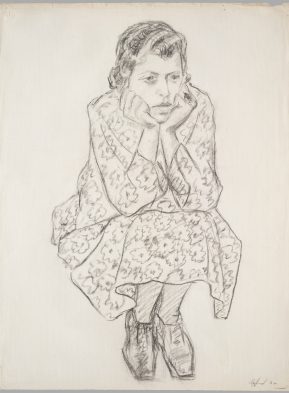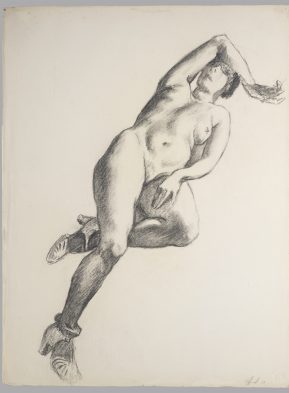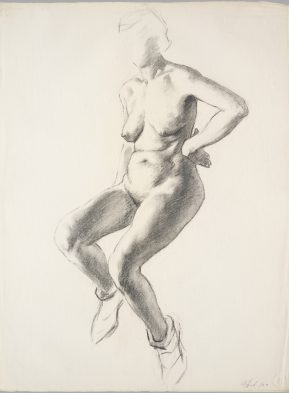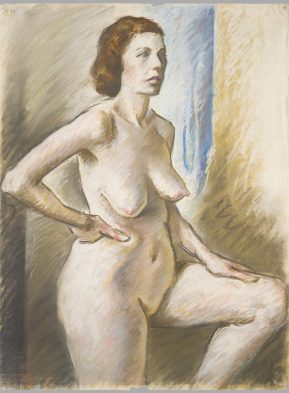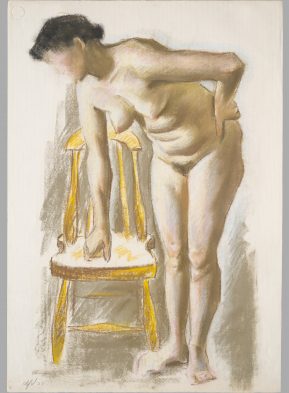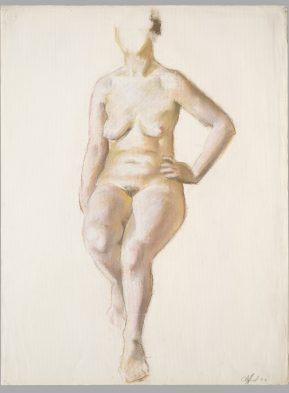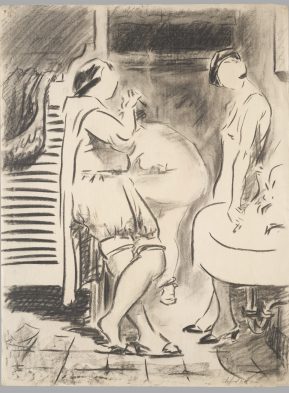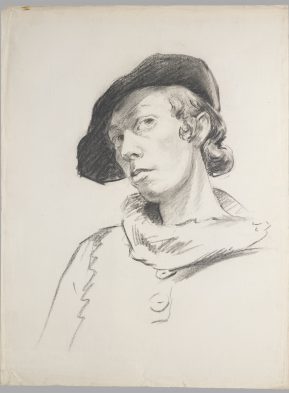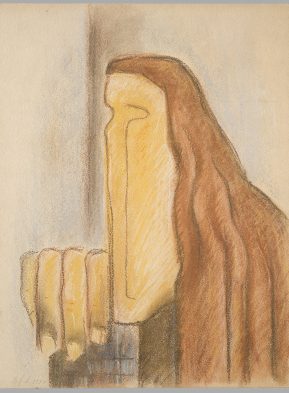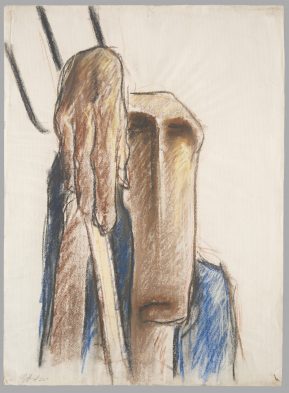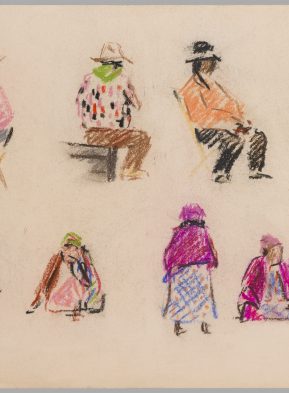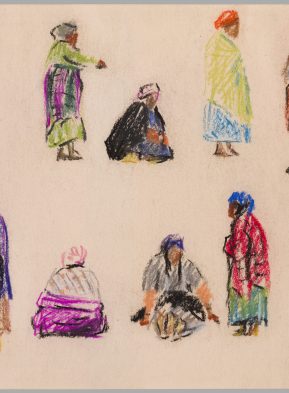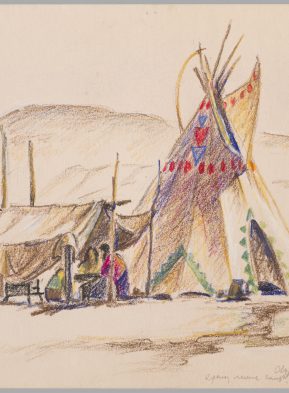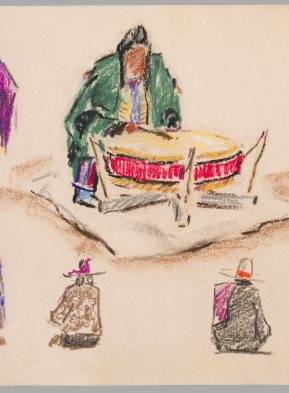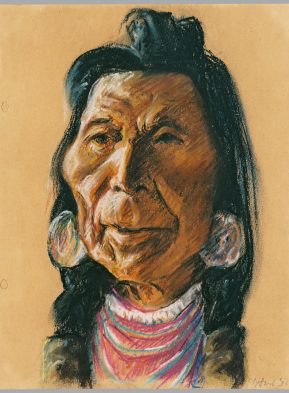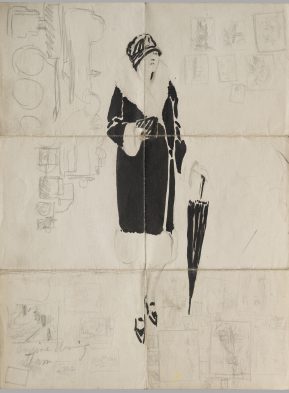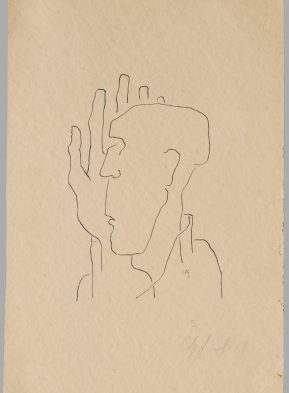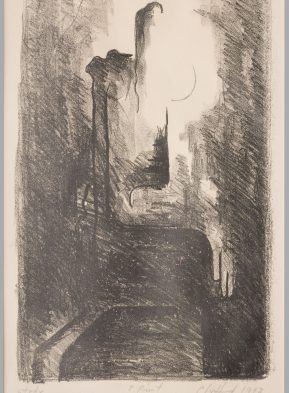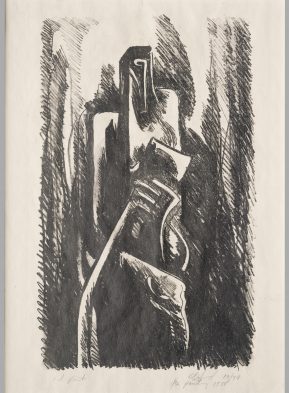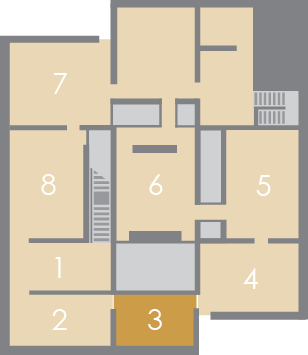
The Figure
Still always stressed that the figure, nature, and the landscape were the three essential components of his art. During the 1930s, he created an ensemble of several moderately large drawings in charcoal and pastel using his wife, Lillian Battan, as a model. These studies add a relatively unexpected dimension to the well-known image of Still as a radical abstractionist: Still could draw with ease in a highly conventional—indeed, almost academic—manner. Furthermore, the choice of a feminine subject proved significant. In the years ahead, when Still began to treat the figure far more imaginatively, certain of his demonic and monstrous presences—as seen in a 1935 pastel (PP-4) and two lithographs from 1943–44—retained feminine traits such as long hair.
Nespelem
In contrast to these conventional works, Still produced a substantial group of pastels during the summer of 1936, when he spent time at the Nespelem reservation of the Colville Confederated Tribes in northeastern Washington State. These delicate and refined images range from elaborate portraits of the Native Americans to deft records of their attire, dwellings, and environment. The drawings are distinguished by their coloring, involving vivid notes of violet, orange, and lemon yellow. These idiosyncratic hues return, transformed, in Still’s abstractions.
Pen-and-Ink Drawings
Two distinct pen-and-ink drawings display Still’s skill in that medium. The first depicts a flapper—broken down into distinct flattened shapes—in a rare instance of almost wry, anecdotal observation. The second drawing is macabre: crisp outlines delineate a skeletal head and hand reminiscent of Frankenstein’s monster.
Two Lithographs
These two prints are from a series of twenty-one lithographs created between 1943 and 1944, and stem from earlier paintings. The drama of their chiaroscuro (a contrast of light and dark), which includes a bright sun and gleaming axe-head set against shadowy bodies, reflects Still’s Manichaeanism: an ancient philosophy that envisions a dualistic universe in which darkness and light (and good and evil) contend.
Citation Information
Chicago
David Anfam, Bailey H. Placzek, Dean Sobel. “The Figure.” In Clyfford Still: The Works on Paper. Denver: Clyfford Still Museum Research Center, 2016. /worksonpaper/the-figure/.
MLA
Anfam, David, et al. “The Figure.” Clyfford Still: The Works on Paper. Denver: Clyfford Still Museum Research Center, 2016. 1 Nov. 2016 </worksonpaper/the-figure/>.
